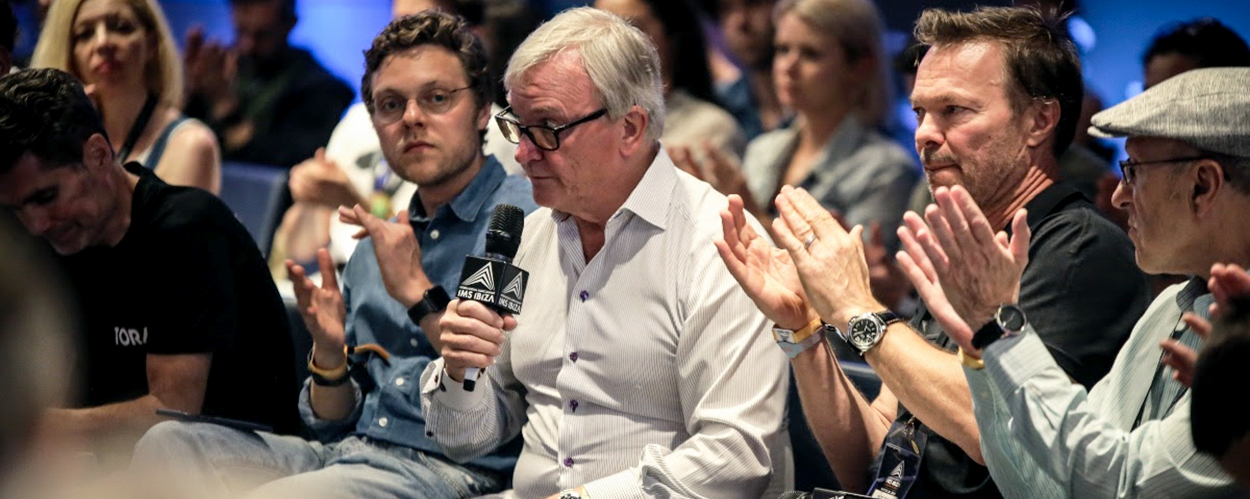This website uses cookies so that we can provide you with the best user experience possible. Cookie information is stored in your browser and performs functions such as recognising you when you return to our website and helping our team to understand which sections of the website you find most interesting and useful.
Artist News Business News Industry People
AFEM launches new mental health guide for dance music community
By Chris Cooke | Published on Friday 24 May 2019

The Association For Electronic Music yesterday launched ‘The Electronic Music Guide To Mental Health’. It provides advice for artists, DJs and managers on a range of health-related topics, with a specific emphasis on those working in the dance music domain.
Based on the guide the UK’s Music Managers Forum produced with Music Support and Help Musicians UK in 2017, the new version was launched at the International Music Summit in Ibiza after an emotional interview with Klaus Bergling, the father of Avicii. Bergling spoke to Pete Tong about the launch of the Tim Bergling Foundation, which will support people and organisations working in the fields of mental illness and suicide prevention.
There has been a much more frank conversation about depression and mental health in the music business in recent years, of course. However, in the dance music community it feels like the death of Avicii in 2018 kickstarted a much more pro-active debate about how the industry can better support its artists and DJs.
Launching the new guide, AFEM’s Tristan Hunt said: “The launch of Tim’s Foundation further underscores the huge importance that’s being given to the subject of mental health by our industry, and the unwavering commitment so many in our community have to helping those who maybe struggling, whilst aiming to prevent others from ever getting into difficulty in the first place”.
“In early 2017”, he went on, “AFEM founded our health working group dedicated to helping protect the mental and physical health of fans and professionals in our community. Our group initially comprised six members – fast forward and it’s now a band of 34 highly experienced individuals from around the world, comprising every sphere of our industry, who are passionately committed to helping prevent mental and physical suffering of any kind in our industry”.
He then added: “With the tragic passing of Avicii in April 2018, and more recently Keith Flint from The Prodigy taking his own life in March of this year, not to mention many others from our community who’s dark times never make the media – this begs a key question: where, why and how are we still failing as an industry?”
Of course, as Hunt also noted, “mental health and suicide are issues that are not germane to electronic music – it is a societal problem”. But there are some elements of working in music – and specifically dance music – that can exacerbate problems when they occur, and prevent people from seeking help or adapting their lifestyles when they really need to.
Hunt said that the aim of the new guide is to “help further normalise and de-stigmatise mental health issues, issues that we can all be impacted by at different times in our lives. It does this by providing expert but easy to understand advice for individuals working in our community at every level. The guide positively addresses a wide range of crucial topics from tinnitus and hearing damage, through to anxiety, depression and the impact of loneliness and sleep deprivation”.
The launch of the guide was followed by an in-depth debate in which artists and DJs discussed their own experiences of depression and addiction, and how they ultimately sought and got help. Managers and tour managers also talked about their respective roles in supporting artists in this domain, while mental health experts provided some practical tips on what the industry could be doing to better support its talent.
Obviously there is no one simple solution. Though providing health advice to all artists as a matter of routine is definitely part of the solution. As are including sleep and other health considerations into all and any tour planning, and better understanding when is the right time to seek professional help.
Constant education is also important, delivering the message that help is out there in as many different ways as possible, so to reach everyone in the wider artist community, and beyond. Guides like that published by MMF two years ago – and the new version now being launched for the dance music community – are one part of that education process, of course.
“As part of IMS’s commitment to supporting AFEM and mental health more broadly, ‘The Electronic Music Guide To Mental Health’ will be released soon to IMS delegates and via our industries’ major media channels”, Hunt concluded.
“As noted, the problem of mental health is complex and nuanced, and it is an issue to which those working in dance music are especially susceptible. It needs our undivided attention. At every level we all need to keep talking, acting and caring in order to save lives and create lives worth living. Always remember, regardless of what you do, you are not alone”.





